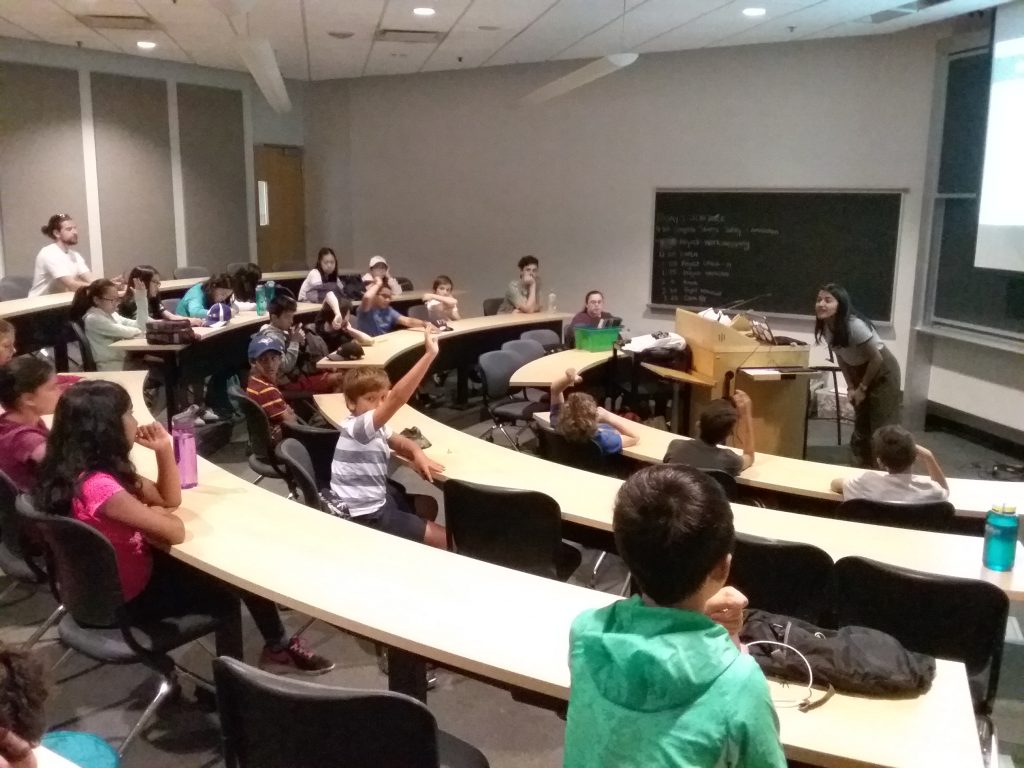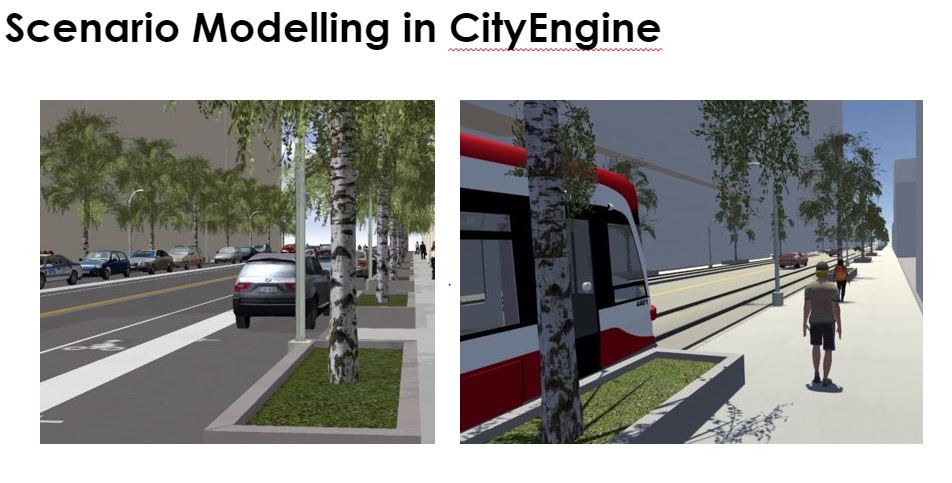
Sneha Adhikari (CivE BASc 2019) presented workshops at the Maximum City Junior | Future City summer program for Grades 5-7 on July 11 and 16, 2019.
Sneha reports that the participants were full of ideas. She says, “I initially spoke with the group and asked questions about their perception of street design and complete streets. They were all very enthusiastic and talked about how streets should be designed for multiple modes and create spaces for people to be engaged.”
“We also talked about how decision-making regarding urban design should be based on data,” Sneha says.

Scenario modelling in Esri’s CityEngine formed part of iCity Urban Informatics’ stated preference survey. The group also heard about Sneha’s 4th year BASc thesis, Evaluating Pedestrian Preference of Walkable Streets using a Stated Preference Survey (2019), for which she:
- Investigated the effects of street-level built environments on pedestrian experience through data collected as a stated preference survey;
- Analyzed pedestrian perception on various combinations of attributes within the: through lane, curb lane, and sidewalk using multinomial logit choice modelling theory; and
- Reported on her results in document form to provide decision-makers with a better idea of pedestrian experience as a factor in selecting streetscape design alternatives.
After an initial session on July 11, program organizers Josh Fullan, Max Longuet, and Heather Miller invited Sneha to come back for a second session July 16 on the complete streets/green streets theme. They noted that Sneha’s presentation on her research really captured campers’ attention.
Each week of summer program at Maximum City focuses on a different urban theme such as designing better public spaces or welcoming newcomers.
iCity: Urban Informatics for Sustainable Metropolitan Growth and its work is funded by the Ontario Research Fund-Research Excellence (ORF-RE). iCity is a “virtual lab” for urban design in which “big” new datasets are combined with powerful simulation and visualization capabilities to address first-order problems in improving urban transportation system performance and designing efficient, sustainable, high quality of life cities. The iCity research platform is a co-creation of a team of multidisciplinary researchers, including transportation engineers, urban planners, computer scientists and experts in digital media.
Maximum City is a youth outreach partner of UTTRI through the iCity research project. We work together to develop and deliver curriculum to youth. Our program connected with 500 students in its first year. Maximum City also works with schools, governments, and communities and trains teachers to deliver its hands-on city-building and environmental challenges to their students.
